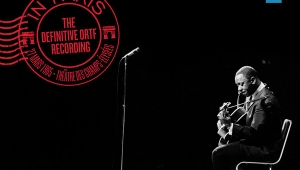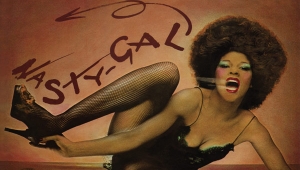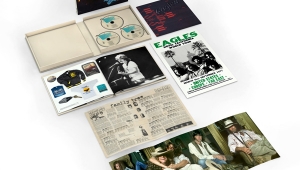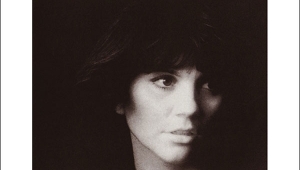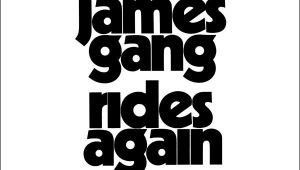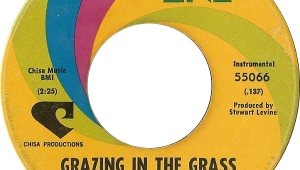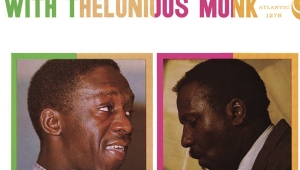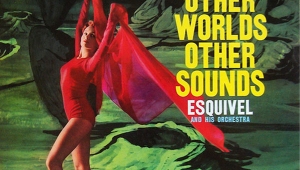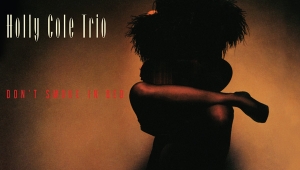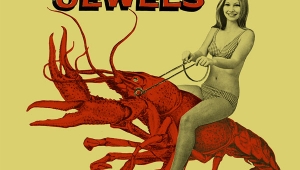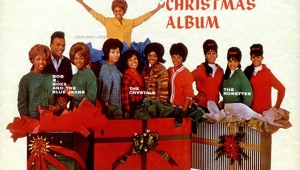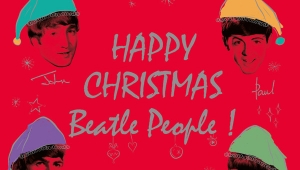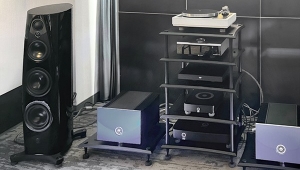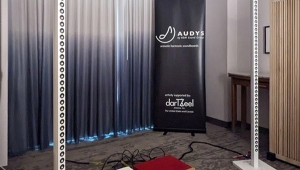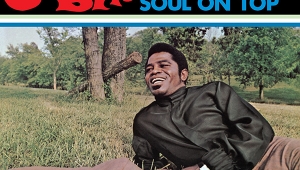| Columns Retired Columns & Blogs |
Bloodshot Records Turns Twenty!

It’s the day after the office Christmas party and yet Bloodshot Records founder Rob Miller gamely agreed to have a chat.
“Our party’s been at the same Mexican restaurant for the past 19 years and I have an incredible superstition that if the bar tab is not bigger than the food tab then we’ve had a bad year.”
Admitting that the Bloodshot offices in Chicago that afternoon are not “a buzzing little hive,” but resemble something more akin to a “slothful, shambling kind of thing,” Miller roused himself long enough to discuss Bloodshot’s 20th anniversary and While No One Was Looking, Toasting 20 Years of Bloodshot Records, the two disc (three LP) tribute record where bands not on the label cover tunes from the label’s growing catalog of over 200 records.
“You might be able to break me down easier today, you might get some deep dark Ryan Adams secrets out of me,” Miller says with a wink in his voice.
Many years ago, twenty in fact, I began writing about this scrappy shytown label that was focusing on the Chicago end of what was then being called, “insurgent country.” Miller, Nan Warshaw, and Eric Babcock (now departed) founded a label to document that scene, that’s now turned twenty despite our disbelief about what that says about our…ahem, respective ages.
“I must have been a precocious nine year old when I started this label,” Miller says laughing. “At that time, we had put a name and a face to something that was happening in different pockets around the country. Then it kind of coalesced around Chicago. But it need not be in one place anymore. Today, there’s no more ground zero. Now it’s just part of the landscape.”
Unlike most anniversary compilations which tend to be greatest hits collections, which can be a boring rehash of what you’ve already bought once, While No One Was Looking hits some high notes for a covers record. Not surprisingly the best material makes for the best covers, like Ryan Adams “Come Pick Me Up,”, which comes from the best-selling Bloodshot record to date, Adams’ Heartbreaker and is here covered by Superchunk. As is usually the case with projects like this, the tracks on While No One Was Looking were recorded in different places and then mastered and sequenced by Miller and what he called, “a guy we’ve been working with for 15 years,” whose actual name is Collin Jordan and he works at a studio called The Boiler Room.
“A lot of people were like are you gonna reissue a bunch of stuff? Do split 7”? But I’m not inclined to look back or do a lot of retrospective kinds of things that didn’t interest any of us.
“The staff here who are all extremely energetic, much younger, super music geeks started to reach out to people and it mushroomed on us really quickly. All of a sudden we had dozens and dozens of people who wanted to get involved and it ballooned into a triple LP. The speed and breath of responses was really surprising, and weird and humbling.
“Quite frankly, I hadn’t heard of a lot of the people on this thing until I was in the studio mastering and sequencing it. To hear the way these people who exist in all different corners of the sonic spectrum were reacting to and covering material from our catalog, it remains a fascinating document.”
As is true with Sub Pop Records, another hallowed indie label that’s had to adapt to changing times, Bloodshot has expanded its musical horizons to survive, now signing more than just insurgent country bands.
“Early on there was this expectation for us to continue to put out the same like Old 97’s record over and over and over again. All of a sudden there were rules. And self-appointed arbiters of authenticity deciding what belongs in this alternative country canon. `Oh that Neko Case record you’re putting out doesn’t sound like a Bloodshot record.’ That's the same kind of horseshit that bored me back when I was a teenager in the punk rock scene and all of a sudden, it was like `Oh that’s not punk rock!’ Or `Why are you listening to Jimmy Cliff?’ ”
“We’ve changed not just to survive, but to keep ourselves interested. Lasting this long we’ve been able to more accurately reflect what goes on in our own record collections a little better. What we’ve put out all makes sense to me but I live in a world where my Misfits records are next to my Peggy Lee records are next to my Hank Williams records are next to my Howlin’ Wolf records.”
But are there boundaries to what Bloodshot will now sign to the label?
“Yeah. No Steely Dan covers. That’s a pretty hard and fast rule. No, everyone we deal with works in some way in traditional American music forms. Then they bring their own sensibilities and experiences and technical proficiency or lack thereof to it. It’s by definition stuff that exists between genres. We started off pretty specifically country but have moved into some R&B and some soul and bluegrass, more traditional things like that. It’s about people filtering. Like Lydia Loveless just last year discovered Robbie Fulks and she’s like `How have I never heard this guy?’ and I’m like `Because you’re 24.’ But that becomes something that’s informing her music. Or somebody like Jon Langford coming from Wales and trying to play ham-fisted punk rock versions of Johnny Cash songs, and he comes up with something completely new.”
Acknowledging that the return of vinyl LPs “nourishes his soul,” and has helped get buyers back into record stores, Miller remains wary of taking the plunge into vinyl for Bloodshot’s new releases. He’s not sold on high resolution downloads either. At the moment all Bloodshot downloads are MP3s.
“Vinyl is more expensive to make, more expensive to ship, has more that can go wrong and has more production hassles. And a box of unsold LPs is far more humiliating to look at in the warehouse than a box of CDs.”
"All the people who are sitting back and going `Ahh vinyl, that’s the solution!’ are the same people who five, or six years ago were sitting back saying `Ahh, ringtones, that’s the solution.’
“And it’s also `I want high rez files. I want colored vinyl. I want everything to be specially packaged.’ At some point that’s unsustainable. All of that is tangential to the real issue which is continuing to find artists and music that resonates with people.”
Congrats Nan and Rob. On to 20 more!
- Log in or register to post comments

